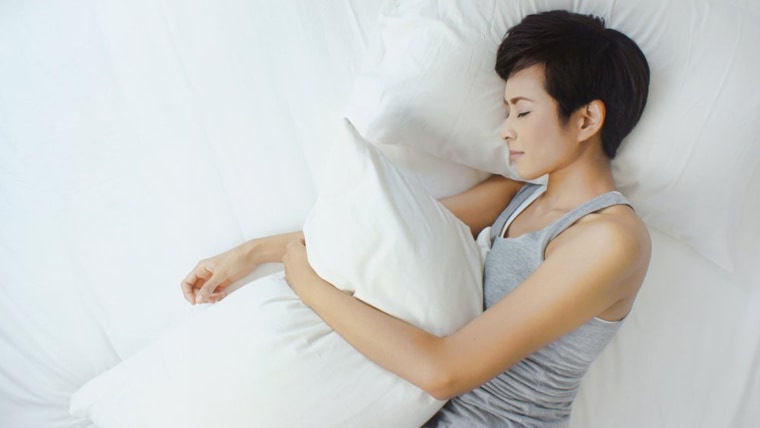It’s no secret that a good night’s sleep is important. In fact, new research shows that a solid seven hours is the minimum we need for good health.

But, for some of us, those seven hours are spent tossing and turning. We count sheep. We try to relax — and nothing.
Before losing all hope, it’s important to know that experts say a good night’s sleep is often just one small change away.
To learn which changes work best, TODAY talked to three sleep experts who shared their number one tips for a better night’s rest.
Don’t look at the clock
“[Looking at the clock] begins a more conscious thought process that is moving toward a wakeful brain than a sleeping brain,” says Dr. Nathanial Watson, president elect of the AASM and director of the University of Washington Sleep Medicine Clinic.
He knows many people need an alarm to wake up. He recommends people set it early in the evening and ignore the clock for the rest of the night. Looking at the clock reminds us that we are not getting enough sleep, which only causes us more stress.
If people wake in the middle of the night, Watson urges them to avoid the lure of the clock. It starts a nasty thought process.
“You are thinking, ‘Why did I wake up so early?’ ‘Am I going to go back to sleep?’ If the hour is later you start thinking about what you have to do during the day.”
Black out the bedroom
“I spent a lot of time in people’s bedrooms. The one thing I think can really affect people’s sleep positively is to truly black out … the bedroom,” says W. Chris Winter, a sleep medicine expert at Charlottesville Neurology & Sleep Medicine in Virginia.
He recommends people go into their bedrooms at noon on a sunny day at noon and find where the light comes into the room. Then use black out shades and even rubber seals on the bottom of the door to prevent light from seeping into the room.
Light and dark regulate the circadian rhythms. The deep darkness will cause the brain to feel sleepy and the bright light wakes the brain.
Keep a schedule
“I think the most important tip that really does work for me myself is to establish a regular routine,” says Dr. Harneet Walia of the Sleep Disorders Center at Cleveland Clinic. “Our body is regulated by our internal clock and if we have a lot of variation with sleep and wake … it can cause some difficulty sleeping and day time sleepiness.”
While Walia recommends that people try to go to bed and wake up around the same every day, she understands that work deadlines, family obligations, or social engagements might keep people up late. She cautions against sleeping in for more than 30 minutes to an hour. Keeping to the same schedule each day makes it easier for people to fall asleep at the same time and leads to other health benefits.
“Their difficulty sleeping is getting resolved,” says Walia. “They will feel better during the day and they will have set routines in other [areas of life].”